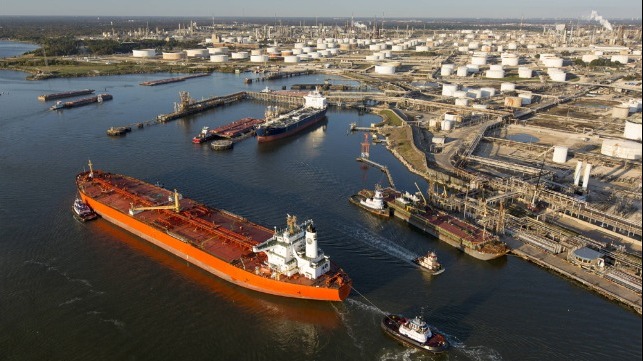ExxonMobil Proposed Carbon Capture Hub for Houston Ship Channel Region

Ahead of the upcoming summit of the climate led by President Joe Biden, ExxonMobil presented a bold plan for carbon capture in the Houston Ship Channel that they say could become a model as part of the solution on carbon emissions. To make it happen, the oil giant says however requires new policies and regulations, private-sector and government investments, government incentives, and critically a government policy establishing a price on carbon.
In an op-ed in The Wall Street Journal, ExxonMobil says that it has been studying for the past three years the concept of creating multi-user carbon capture and storage hubs in industrial areas. Their concept for hubs is to locate them near safe geological storage sites.
“The heavy-industry area of the Houston Ship Channel on the Gulf Coast of Texas is an ideal location to apply this concept,” the company writes. “This area houses one of the country's largest sources of industrial emissions and is close to the Gulf of Mexico's vast subsurface storage potential, where the CO2 would be permanently stored in the pore space of the rocks, thousands of feet below the seafloor.”
The Houston Ship Channel could also serve as a model because it involved all three of the industries cited as the leading sources of carbon emissions. About 80 percent of carbon emissions come from the commercial transportation, power generation, and industrial manufacturing sectors. ExxonMobil estimates that the development of carbon capture operations in the region could result in by 2040 up to 100 million metric tons a year of carbon being stored in the Houston area, which is seven times the amount of carbon currently being captured in the U.S. In total, they estimated there is adequate capacity along the Gulf Coast to store around 500 billion metric tons of CO2.
While there is a range of projects being proposed globally for carbon capture and storage, critics say the technology has struggled to gain traction and is yet to prove its economic viability. Environmentalists say the oil industry is focusing on carbon capture to the detriment of solar and wind because it is a justification to continue oil and gas production.

that matters most
Get the latest maritime news delivered to your inbox daily.
“Carbon capture and storage is one of the few proven technologies that could enable some heavy-emitting sectors to decarbonize,” says ExxonMobil. However, to achieve their “Houston CCS Innovation Zone” concept the company says would require the "whole of government" approach to the climate challenge. “Government's role would be to put in place a stable regulatory and legal environment and enable CCS to receive private investment and government incentives directly,” the company says in its proposal.
The concept requires establishing a price on carbon because ExxonMobil says that it would provide the market certainty required to enable businesses to generate returns on carbon-reducing investments. By using this approach ExxonMobil believes it would be possible to attract more than $100 billion in investments and that the city of Houston could achieve its goal of becoming carbon-neutral by 2050.
